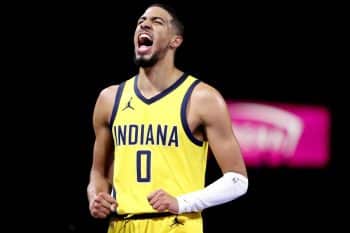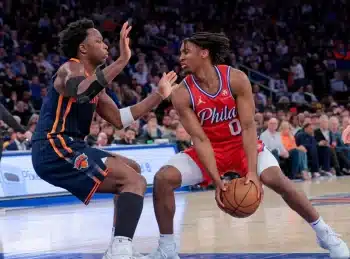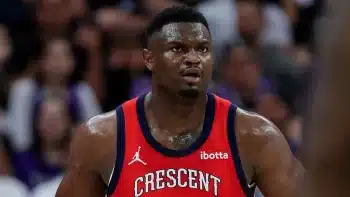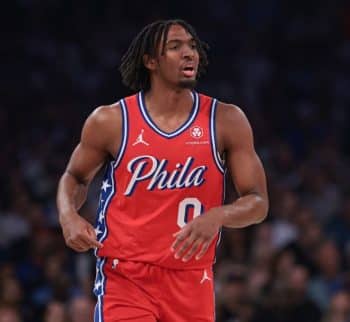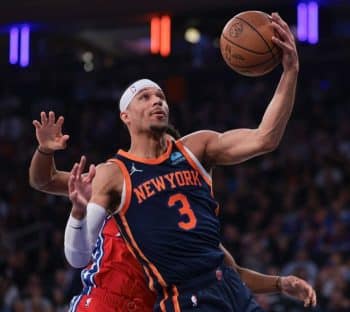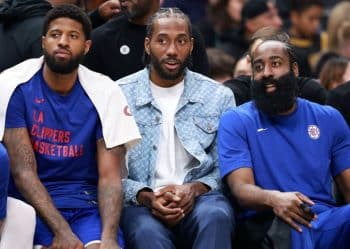NBA
The Tyson Chandler Effect
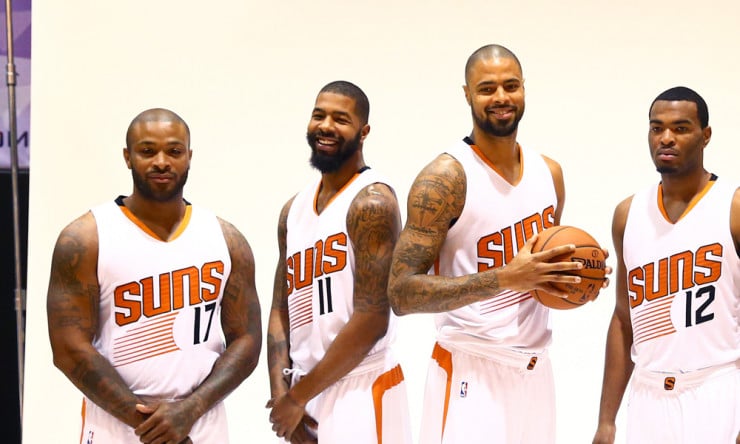
Tyson Chandler was the marquee free agent acquisition for the Phoenix Suns this offseason. Interestingly enough, while Chandler is a huge addition in and of himself, he was originally brought in to nab a bigger fish.
The San Antonio Spurs had nearly everything that LaMarcus Aldridge wanted in whichever team he would sign with this past summer. The thing they didn’t have was Tyson Chandler. Aldridge let it be known that Chandler was someone he wanted to play with, so when the Suns signed him, they suddenly had a leg up on everyone else and closed the gap on the Spurs. It ultimately took another sit down with Gregg Popovich and the Spurs to convince Aldridge to go to San Antonio.
So, Suns General Manager Ryan McDonough didn’t quite hit a home run, but he ended up with a solid double. Chandler still brings so much to this Suns team, even for a player that turned 33 on Friday. He’s the perfect fit.
On the Court:
Offense
Chandler isn’t an offensively gifted center, but he is effective. This is because Chandler understands his limitations and his role and plays within them. Chandler doesn’t have much range on his shot, so he only attempts shots that are near or at the rim. This is how he has maintained such a high field goal percentage throughout his career (59.1 percent). In addition, Chandler has improved his free throw shooting throughout his career and shot a very respectable 72 percent from the line last season.
Where Chandler is most effective is his ability to play off of others. He lingers near the basket waiting for drop-offs, alley-oops or put-backs off of missed field goals. He also sets those brutal, hard screens in the pick-and-roll, spinning off his opponent and diving down to the hoop, where he typically slams home a lob or cleans up the missed layup with a crushing put-back dunk.
While Chandler is effective on offense, he is somewhat limited and certainly not a focal point. The defensive side of the ball is where he really makes his impact.
Defense
In 2011-12, Chandler won the Defensive Player of the Year Award. He has averaged 1.3 blocks per game for his career and has consistently been one of the best rim protectors in the league. When he is down by the hoop, opponents score 50.9 percent of the time. That may seem high, but according to Nylon Calculus, centers and power forwards that played at least 1,000 minutes allowed an average of 57.1 percent shooting at the rim. Nylon Calculus also has Chandler at 48.5 points saved over the position average in 2014-15.
Also, Chandler was the only great defender on the Dallas Mavericks last year. He had to corral all the opposing players blowing by most of his sub-par defensive teammates and prevent them from scoring at the rim. That won’t happen as much in Phoenix as the Suns have Eric Bledsoe and P.J. Tucker as good defenders in the projected starting lineup.
Communication
Chandler will potentially make his biggest impact in terms of communication. Last year’s starting lineup had all quiet players (Eric Bledsoe, Goran Dragic/Brandon Knight, Alex Len and in a sense, Markieff Morris), with the obvious exception being P.J. Tucker. Chandler is the master of leading a defense with communication. He makes sure everyone is where they should be, calling out everything from the back of the defense, assuring nothing falls through the cracks.
It’s already rubbing off on the rest of the team early in training camp.
“Guys who aren’t usually talking are talking,” Tucker said to Arizona Republic beat writer Paul Coro. “Eric (Bledsoe) is talking more so I think it’s contagious. That’s one of our biggest problems in the past – our communication. Coming from the wing is one thing. But when you’ve got a big anchor in the middle that’s doing it, it’s a whole other deal.”
Chandler will be the anchor of this Suns defense, relentlessly cleaning up any mistakes and making sure everyone is on the same page with constant communication.
Rebounding
On both the offensive and defensive ends of the floor, Chandler is an excellent rebounder. For his career, he is averaging 9.3 total rebounds per game, but in 2014-15 he averaged 11.5. That’s impressive. In seven years of his career, Chandler has been a top-seven offensive rebounder, including back-to-back seasons as the number one offensive rebounder (2006-07 to 2007-08). He was third last year behind only Andre Drummond and DeAndre Jordan.
Last season, Chandler was sixth in defensive rebounding, and probably wasn’t higher because he had to commit so much energy and focus as a help-defender in Dallas. He’d rotate and cause the missed shot on someone else’s man, and then one of his teammates would often times grab the easy rebound instead of him.
Off the court:
Chandler brings a championship pedigree to the Suns they haven’t had in quite some time. Phoenix hasn’t had a major impact player with recent championship experience on their roster in many years. They now have that in Chandler, who won a title in 2011 with the Mavericks.
His leadership could have a big impact and far-reaching implications. The Suns may be able to handle and persevere through a tough game to come back and win it. They will also have the ability to get those crucial stops in crunch time with Chandler anchoring the defense. In addition, they may cut down on technical fouls as Chandler will keep everyone in check as the veteran leader on the team. Additionally, Chandler could help with the ongoing Markieff Morris situation.
Chandler could also oversee and perhaps even speed up the development and maturity of this young team. The main core, which includes the dynamic point guard duo of Eric Bledsoe (25) and Brandon Knight (23), along with Markieff Morris (26), is quite young. In addition, a major part of the rotation that includes T.J. Warren (22), Archie Goodwin (21), and Devin Booker (18) is even younger collectively and will all benefit from Chandler’s guidance. While Chandler (33) is still the oldest player on the team, there still are a few other veterans on the roster, including Ronnie Price (32), Mirza Teletovic (30), P.J. Tucker (30) and Sonny Weems (29) that can help out.
Alex Len (22) in particular will see improvement from Chandler’s presence. The addition moves Len back to the bench where he will be able to play against backup units and gain confidence. Additionally, the mentorship of Chandler, both on and off the court, may help Len become a star as Len has the ability to arguably be even better than Chandler at some point.
Overall, the Suns will probably be more disciplined and under control this season with the addition of Chandler, which is important because Phoenix gave away a bunch of games last season due to unprofessional (untimely technicals) or undisciplined play during clutch time.
